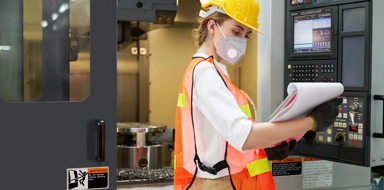I’ve seen numerous manufacturers face increased demand during the pandemic, depending on the industry they’re in. Makers of medical bags for the NHS are just one example of those who have required technology to fulfil a surge in sales. Others have adapted their manufacturing to produce goods for essential businesses, and so needed to improve their systems integration.
Digital tools have been essential to meeting demand, making steaming ahead with digitalisation more of a necessity. It allows a degree of certainty when it comes to a constant revenue stream, and certainty is so hard to find right now. These makers now have the confidence to invest in technical projects and remain financially stable.






